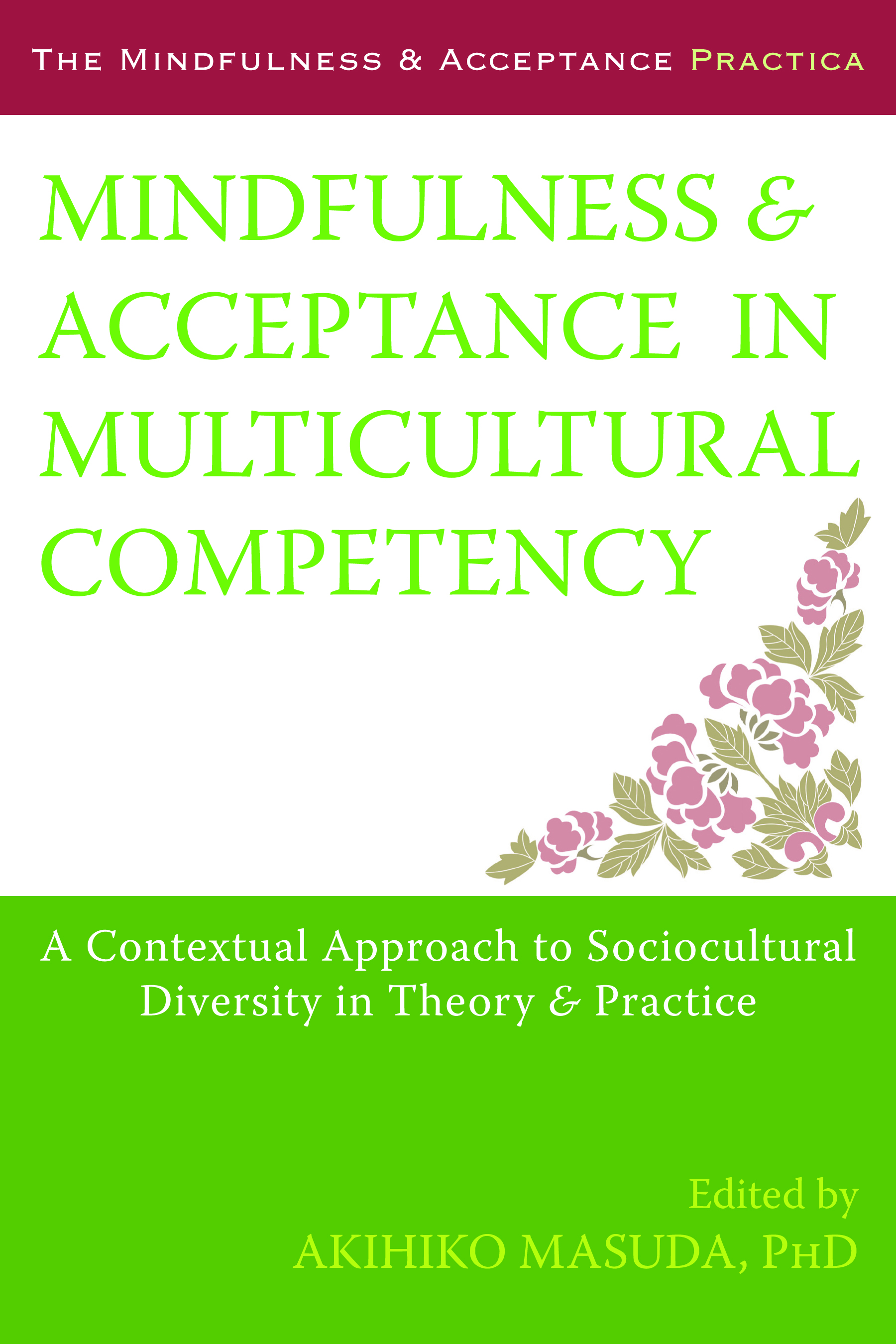 Mindfulness and Acceptance in Multicultural Competency by Akihiko Masudo is part of The Mindfulness and Acceptance Practica series. This groundbreaking volume focuses on a contextual approach to multicultural theory and practice. With the emergence of new cognitive and behavioral therapies that integrate mindfulness and acceptance principles, this book represents a significant contribution to the exploration of how these principles account for culture and diversity, the particular ways in which acceptance and mindfulness-based methods can be adapted culturally through specific evidenced-based approaches, and the application of mindfulness and acceptance to some issues commonly linked to the experience of diversity.
Mindfulness and Acceptance in Multicultural Competency by Akihiko Masudo is part of The Mindfulness and Acceptance Practica series. This groundbreaking volume focuses on a contextual approach to multicultural theory and practice. With the emergence of new cognitive and behavioral therapies that integrate mindfulness and acceptance principles, this book represents a significant contribution to the exploration of how these principles account for culture and diversity, the particular ways in which acceptance and mindfulness-based methods can be adapted culturally through specific evidenced-based approaches, and the application of mindfulness and acceptance to some issues commonly linked to the experience of diversity.
Part I of the book addresses the complexity of multicultural issues with an emphasis on how mindfulness and acceptance principles, which are based on a functional-context perspective, represent a valid alternative to the classic content-based approach (awareness, knowledge and skills) in promoting multicultural competence. As such, the contributors argue that in order to understand and promote cultural competency, there is a need to develop a functional contextualism, which demands an understanding of the moment-by-moment and relational nature of the counseling experience, as well as an acknowledgment that both counselor and client are contextual beings.
Part II of the book focuses on the cultural competency and cultural adaptation of Dialectical Behavior Therapy, Mindfulness-Based Cognitive Therapy, and Acceptance and Commitment Therapy. A central premise of this section is that these approaches are functional, contextual and process-focused, and as such, they facilitate cultural competency. The book presents specific examples of how these therapies can be contextually adapted to the client’s sociocultural background.
Part III of this volume illustrates the use of mindfulness- and acceptance-based principles and interventions in general contexts of multicultural practice and training, as well as in addressing specific issues. The beginning of this section illustrates the cultural adaptation of mindfulness- and acceptance-based approaches for non-English speakers. The authors’ main point is that the adaptation of intervention protocols, rather than simply attending to issues of content, must attend to the functional and contextual reality of the clients. The next part of this section focuses on the use of mindfulness and acceptance principles in multicultural competency training. The authors’ basic premise is that acceptance- and mindfulness-based approaches can reduce responses that interfere with multicultural training and lead to intrinsic motivation for developing multicultural competency. The rest of this section focuses on how mindfulness and acceptance principles and interventions can be used to address specific issues associated with the experience of diversity such as spirituality, prejudice and shame. The contributors’ main ideas reflect the need to emphasize the common ground between prominent spiritual traditions and acceptance- and mindfulness-based therapies, the importance of increasing psychological flexibility, the relevance of focusing on the verbal processes that underlie stigma rather than its content, the importance of promoting intrinsic and prosocial anti-stigma actions, and the need to integrate compassion-based interventions that promote quality of life.
As a whole, this book represents a valuable addition to the classic content-based approaches to building multicultural competency. Mindfulness and acceptance principles are highlighted as useful tools in the process of understanding and conceptualizing cultural issues. Mindfulness- and acceptance-based approaches are examined based on their cultural competency as well as their great potential for multicultural adaptation. Finally, mindfulness and acceptance principles and interventions are presented as significant resources for facilitating change in the context of issues that are relevant to specific minorities.
In general, the authors succeed in illustrating the enhancing role that mindfulness- and commitment-based principles and interventions have in the process of conceptualizing and developing cultural competency. Their demonstration of the adaptability of specific approaches is valuable but somewhat limited, mostly due to the low availability of research and experience related to the implementation of these approaches with diverse populations. In my opinion, this volume’s greatest contribution is its illustration, with specific case examples, of the groundbreaking potential that mindfulness- and commitment-based principles and interventions have in the change process of those affected by issues such as stigma, discrimination and prejudice.
Reviewed by: Raul Machuca, Barry University, Miami Shores, FL.
Masuda, A. (Ed.). (2014). Mindfulness and acceptance in multicultural competency. Oakland, CA: New Harbinger.
